The place where cast-off clothes end up
- Published
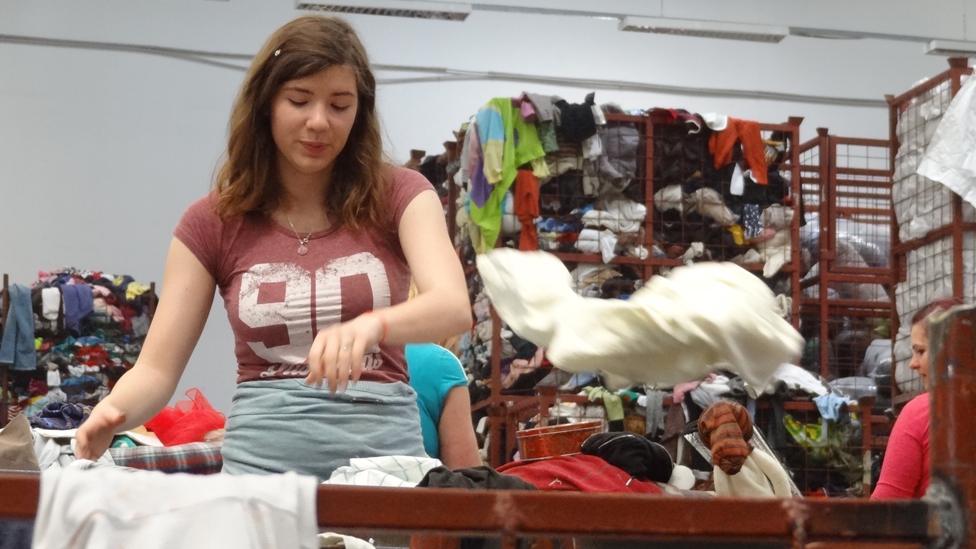
If you give clothes away to charity or for recycling, there's a good chance they will pass through a warehouse in the Hungarian town of Szekesfehervar, writes Nick Thorpe.
Geza, Grand Prince of the House of Arpad, founded Szekesfehervar or "the seat of the white castle" - now a bustling town of 100,000 people - in the year 972. The whiteness of the castle, they say, was either due to the dazzling colour of the stones, or to the custom of whitewashing the walls.
The Grand Prince might be perplexed if he visited his town today. Just off the ring road linking it to the M7 motorway, from Budapest to the Adriatic, stands a vast warehouse. Each day 100 tonnes of used clothes, mostly from Britain, are unloaded here, in huge white bales. Each weighs at least 300kg and contains what one might call a mixed bag of items - ladies blouses, men's T-shirts, children shoes, winter coats. All the junk which British households feel they can do without and contribute to charity shops and door-to-door collections with the best will in the world. This is the conscience of the West, the gift of the First World to the Third, intercepted briefly, by those in the Second.
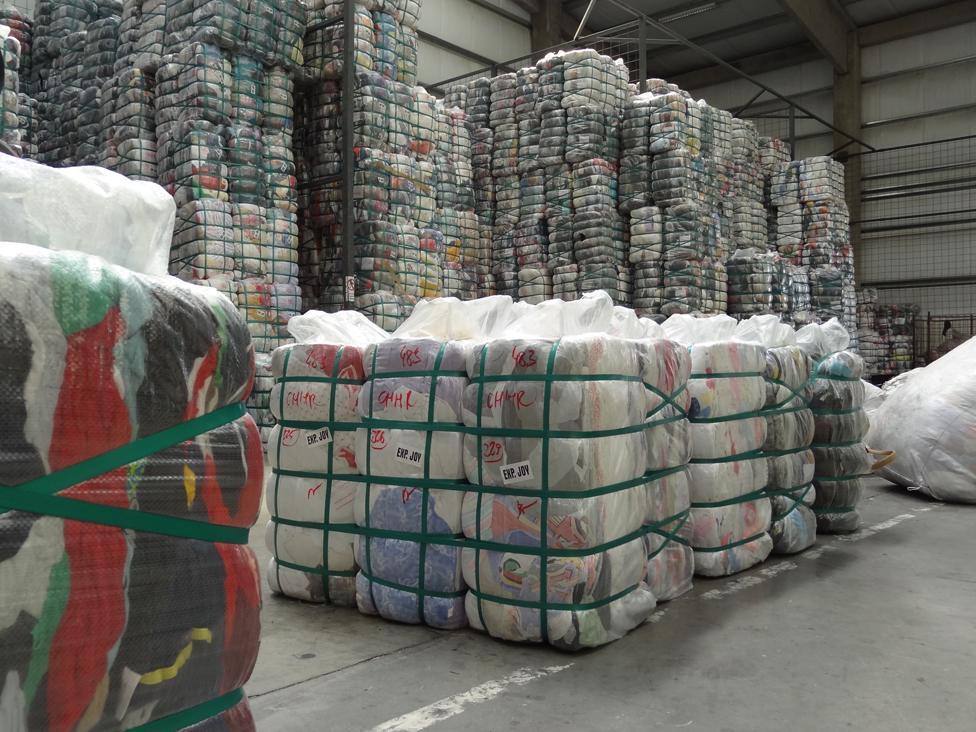
Only the cream of the cream - smart shirts or frocks or jackets with designer labels - stay in Hungary. These make up between 5% and 10% of the total intake. Lower quality items go to West Africa, Pakistan, or India.
The waste - especially the winter clothes which no-one in the hot countries needs - is transformed into briquettes to be burned in cement works. Only 1% has to be thrown away, Robi Nagy, the sales manager of Textrade, the company which owns the sorting facility tells me. But because of the sheer volume of items coming through here, that means one tonne a day ends up in landfill sites. These are the materials which do not even burn.
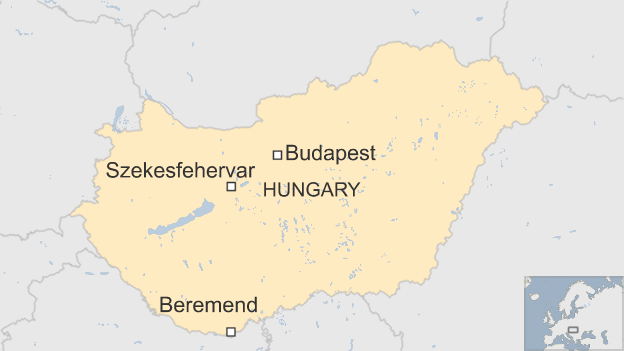
A tearing sound cuts through the din of the conveyor belts, the music on the radio, and the calls of the 300 employees to one another. It is the sound of a man with a large knife ripping open the next bale.
A flock of women, like tattooed seagulls, perch beside the conveyor belt above him waiting to get their hands on the new arrivals. The clothes are sorted into giant brown painted cages. The women are experts at assessing whether a lady's nightdress will fetch a pretty penny in the second-hand shops which dot the high streets of every Hungarian town, or whether no self-respecting Hungarian, Ghanaian, or Pakistani woman would be seen dead in it. Robi tells me he has one Arab customer who snaps up all the fur, fake fur, and genuine leather items. "What for?" I hazard. Robi just shrugs.
Another cage holds ski boots, ice skates and all the bric-a-brac of winter sports. Two men working at a packaging machine put second-grade summer clothes from Europe into transparent wrapping to be shipped to West Africa. "We have African customers," he whispers respectfully, "who can tell the worth of a shipment just by glancing at it. So it has to be transparent plastic."
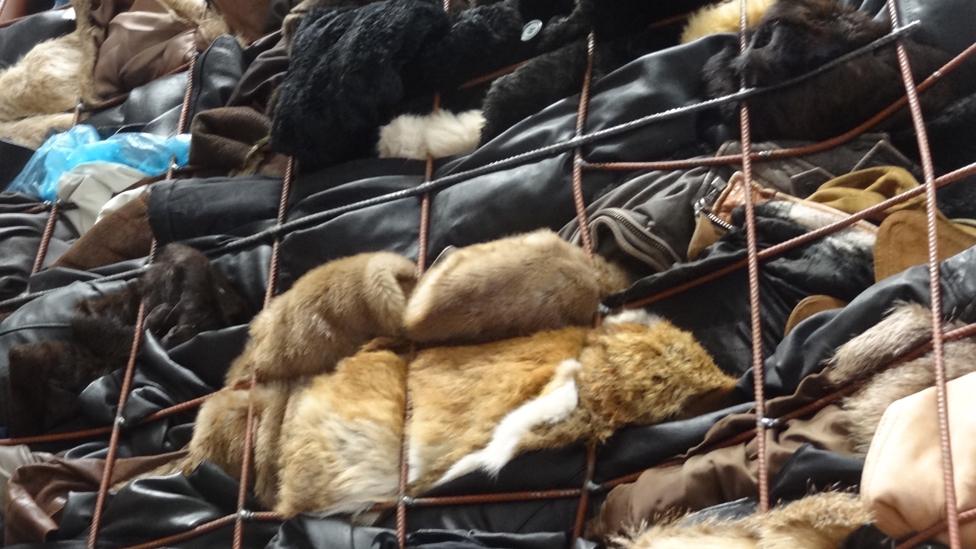

Find out more
From Our Own Correspondent has insight and analysis from BBC journalists, correspondents and writers from around the world
Listen on iPlayer, get the podcast or listen on the BBC World Service or on Radio 4 on Thursdays at 11:00 BST and Saturdays at 11:30 BST

There are bright sides and dark sides to this industry. The fact that so many East Europeans wear British cast-offs presumably means fewer items need to be produced, less energy used, less water lost.
On the negative side, why do we buy so many things? And why do we need to destroy the livelihoods of European, African, and Asian craftsmen and women by drowning their small clothes-making workshops in a tidal wave of our own waste?
When I lived in Senegal, I had a small friend called Ben who was six years old and spoke as many languages. He always wore the same pair of red shorts - he had no shoes. I thought of him there, in that ragged, multicoloured circus, beside the white castle. If he's still alive, he would be 42 now.
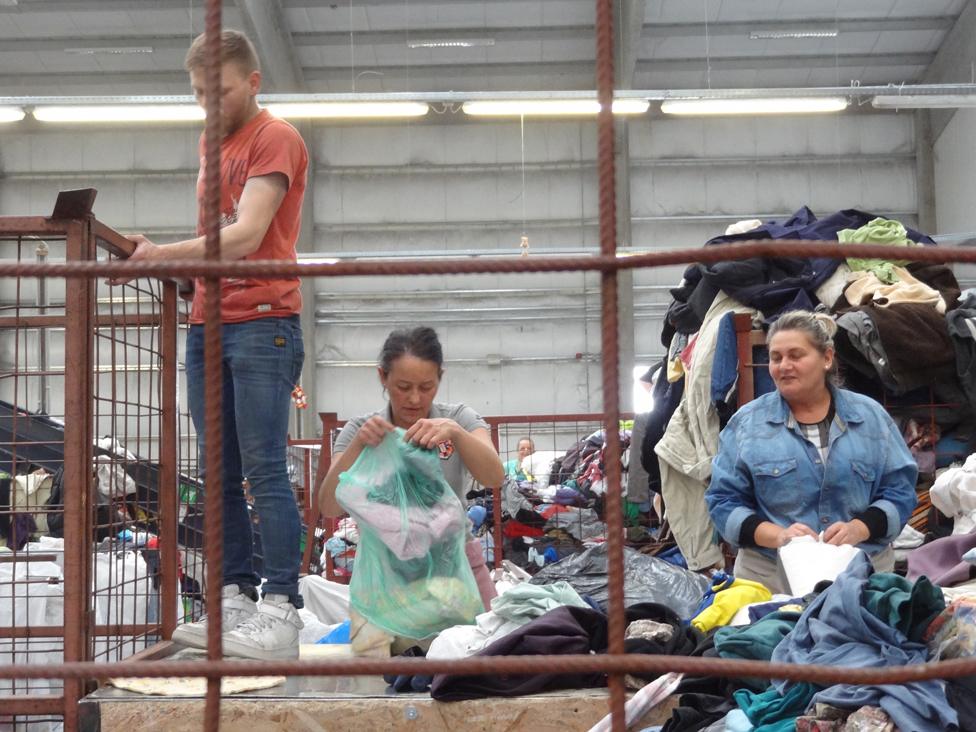
Upstairs in the warehouse, the women iron individual items, to be draped on dummies, photographed in booths, and snapped up almost instantly by Hungarians surfing the worldwide web for clothing bargains. Online sales, the manager beams, are booming.
One machine with iron teeth destroys the leftovers. "In which cement works will they be burned?" asks your nosy reporter. "At Beremend, on the Croatian border," Robi replies.
I know it well. Thousands of migrants from the Middle East and Africa passed it on their long journeys last autumn. Unaware that the smoke billowing from that single chimney contained the ash of clothes once destined for them.
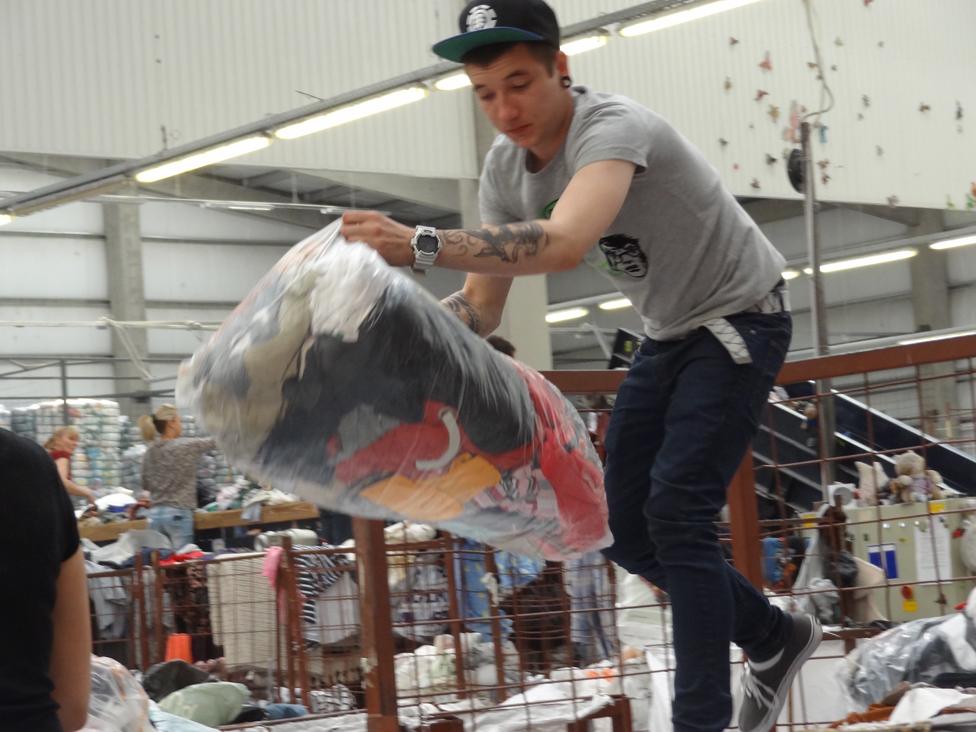
Subscribe to the BBC News Magazine's email newsletter to get articles sent to your inbox.